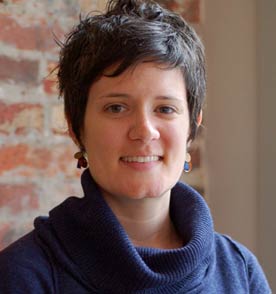
In my work, talking about self-interest can be difficult at first, especially with people new to organizing. They equate it with selfishness and that makes them uncomfortable. “I don’t want anything for my church,” a local pastor answered when I asked him what his church wanted from a coalition effort. “We just want to help the community.” “It’s OK to want something that benefits the church,” I countered. “You’re putting in time and resources, and that should pay off for you.”
While I was successful with the pastor, not all conversations went so smoothly. I remember talking with a homeowner in a section of Philadelphia overrun with blighted land. She was resisting proposed rental housing with the usual “not in my back yard” tirade. “Renters don’t care about our neighborhood,” she said. “They live here a few years and then move on. I’m here for the long haul.”
Conversations like these made my blood boil. I wanted to respond to each statement, one by one: “Look at the number of renters involved in our neighborhood organization! Let me introduce you to Ms. Jones who has lived here for 35 years!”
After a few conversations that left me spluttering, I realized I needed to listen more closely. Underneath her fears about renters, I heard the woman saying, “I worked hard to get this house. It’s my biggest asset and I’m counting on it down the road. I’m worried these new homes will lower the value of my own house.” When I trained my ear — and reserved my judgment — I could hear her self-interest. And then I could speak to it.
Instead of giving her a piece of my mind, or working to change hers, I simply said: “Do you know the number one drain on your property values? It’s the big, blighted lot that takes up half your block. My organization is working to replace that blight with brand new houses.” This answer kept the conversation going, got the homes built, and gave people a chance to interact as neighbors, rather than as feared “others.”
If there’s a lesson in my experience, particularly in this time of ever-shrinking resources, it is this: Understanding how to talk about the work we do in a way that speaks to what others care about — be they concerned homeowners, commercial developers, or politicians seeking re-election — does not compromise our closely-held values of fairness and inclusion. On the contrary, listening to people with other interests and exploring if we have common ground gives us the opportunity to live out our ideals.




Comments